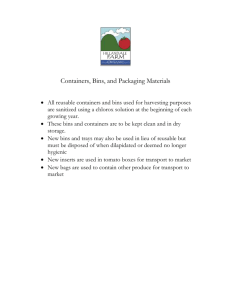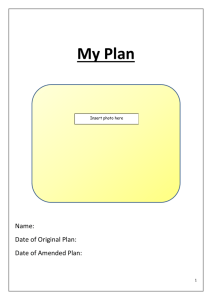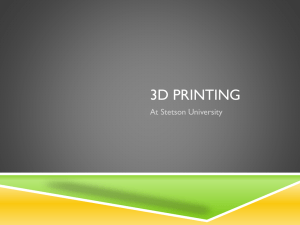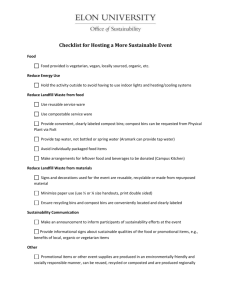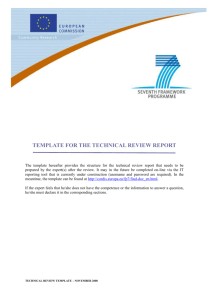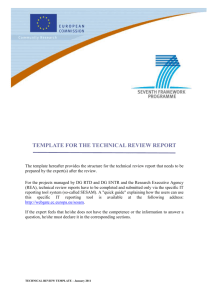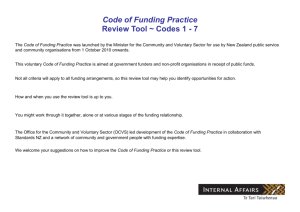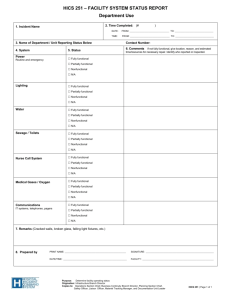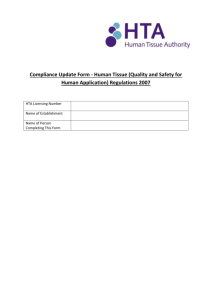Green Office Operations Audit/Occupant Driven Behaviors
advertisement
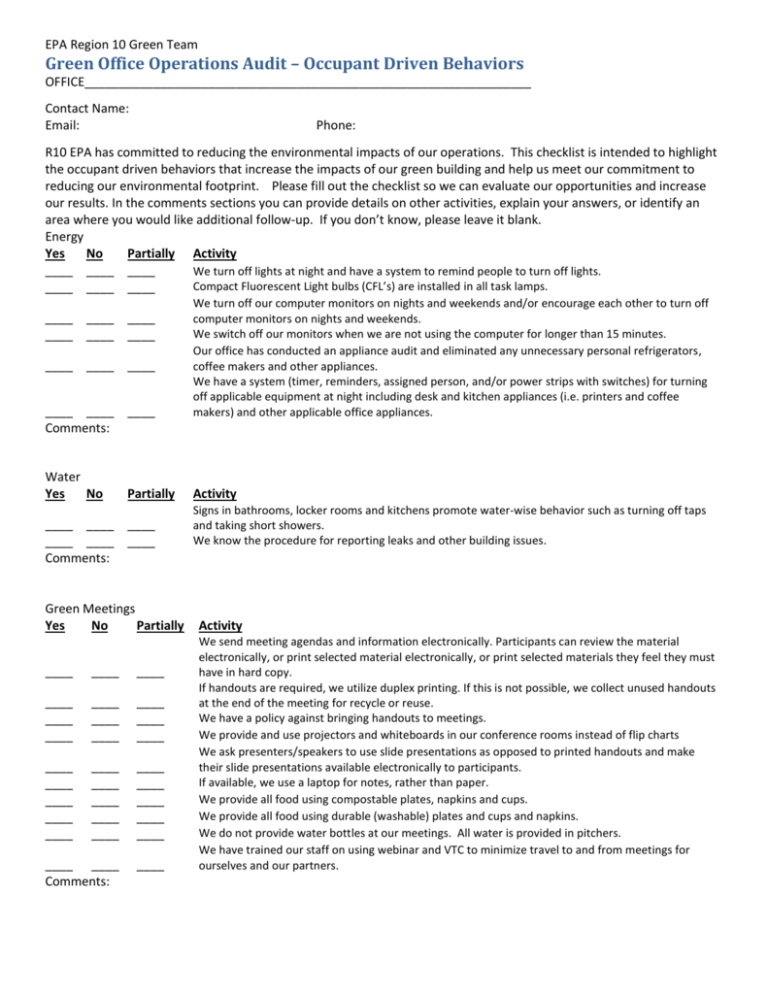
EPA Region 10 Green Team Green Office Operations Audit – Occupant Driven Behaviors OFFICE_________________________________________________________________ Contact Name: Email: Phone: R10 EPA has committed to reducing the environmental impacts of our operations. This checklist is intended to highlight the occupant driven behaviors that increase the impacts of our green building and help us meet our commitment to reducing our environmental footprint. Please fill out the checklist so we can evaluate our opportunities and increase our results. In the comments sections you can provide details on other activities, explain your answers, or identify an area where you would like additional follow-up. If you don’t know, please leave it blank. Energy Yes No Partially Activity ____ ____ ____ We turn off lights at night and have a system to remind people to turn off lights. Compact Fluorescent Light bulbs (CFL’s) are installed in all task lamps. ____ ____ ____ ____ ____ ____ ____ ____ ____ ____ ____ ____ ____ ____ ____ Comments: Water Yes No Partially ____ ____ ____ ____ ____ ____ Comments: Green Meetings Yes No Partially ____ ____ ____ ____ ____ ____ ____ ____ ____ ____ ____ ____ ____ ____ ____ ____ ____ ____ ____ ____ ____ ____ ____ ____ ____ ____ ____ ____ ____ Comments: ____ We turn off our computer monitors on nights and weekends and/or encourage each other to turn off computer monitors on nights and weekends. We switch off our monitors when we are not using the computer for longer than 15 minutes. Our office has conducted an appliance audit and eliminated any unnecessary personal refrigerators, coffee makers and other appliances. We have a system (timer, reminders, assigned person, and/or power strips with switches) for turning off applicable equipment at night including desk and kitchen appliances (i.e. printers and coffee makers) and other applicable office appliances. Activity Signs in bathrooms, locker rooms and kitchens promote water-wise behavior such as turning off taps and taking short showers. We know the procedure for reporting leaks and other building issues. Activity We send meeting agendas and information electronically. Participants can review the material electronically, or print selected material electronically, or print selected materials they feel they must have in hard copy. If handouts are required, we utilize duplex printing. If this is not possible, we collect unused handouts at the end of the meeting for recycle or reuse. We have a policy against bringing handouts to meetings. We provide and use projectors and whiteboards in our conference rooms instead of flip charts We ask presenters/speakers to use slide presentations as opposed to printed handouts and make their slide presentations available electronically to participants. If available, we use a laptop for notes, rather than paper. We provide all food using compostable plates, napkins and cups. We provide all food using durable (washable) plates and cups and napkins. We do not provide water bottles at our meetings. All water is provided in pitchers. We have trained our staff on using webinar and VTC to minimize travel to and from meetings for ourselves and our partners. Paper and Printing Yes No Partially ____ ____ ____ ____ ____ ____ ____ ____ ____ ____ ____ ____ ____ ____ ____ ____ ____ ____ ____ ____ ____ Comments: Purchasing Yes No Partially ____ ____ ____ ____ ____ ____ ____ ____ ____ ____ ____ ____ ____ ____ ____ ____ ____ ____ Comments: Activity Our printer’s and copier’s default setting is set to duplex print (double-sided), and tutorials/training are available to assist employees in their non-duplex printing needs. We use narrow margins (less than 1”) and small fonts (10 pt) when printing. We take our one-sided misprinted paper or out of date stationary to a copy center to re-use as GOOS notepads. We have an office-wide commitment to only print when necessary. We track the amount of paper we use in the office and share that information with staff. We reduce all forms of paper including junk mail, extra faxes, and extra print jobs. We use online forums or collaboration tools to share information instead of printing brochures. If we do print, we actively try to reduce the size and frequency. Activity We look for reusable items before we purchase something new. We minimize the quantity of items we purchase and if we are purchasing office specific items, we evaluate and purchase the most environmentally friendly items. If purchasing equipment, we always purchase EnergyStar and EPEAT registered products. When purchasing, we buy durable, reusable items. We share resources among staff to limit the purchase of new equipment Office promotes use of durable service-ware by providing or having staff bring in their own durable plates, cups, and utensils at office events. Recycling and Waste Prevention Yes No Partially Activity Recycling and composting bins have decals and/or recycling posters hung above the bins ____ ____ ____ ____ ____ ____ ____ ____ ____ ____ ____ ____ Comments: Transportation Yes No Partially ____ ____ ____ ____ ____ ____ ____ ____ ____ ____ ____ ____ ____ ____ ____ ____ ____ ____ ____ ____ ____ Comments: We check our bins to make sure they are being properly used. If they are not, we put up signs describing the correct action. Approved compostable service-ware items (plates, cups, and utensils) are available for staff use instead of non-compostable service-ware items, for times when reusable alternatives are not appropriate. Our office promotes use of reusable/durable food containers and discourages the use of foil, plastic wrap, and other disposable food packaging through informational posters & signage Activity More than 50% of our staff has walked, used public transit or biked to an off-site meeting in the past 3 months. We are encouraged to telecommute and our average number of telecommuting days per week is greater than (or equal to?)1. We provide and utilize conference calls, webinars and video conferencing rather than travelling to offsite meetings. When scheduling travel, we evaluate IT options – video conferencing, for example - instead of automatically traveling. We only travel when necessary and minimize the number of people who travel. In the past year, 75% of trips to Portland have been by train or have more than 2people in the car. In the past year, our office has video conference into at least one national meeting. We actively try to carpool or reduce trips to and from Olympia. Our group is using alternative commute options to travel to and from work, such as walking, biking, carpooling, and public transportation ___85% ___75% ___65% ___Less than 65%.
